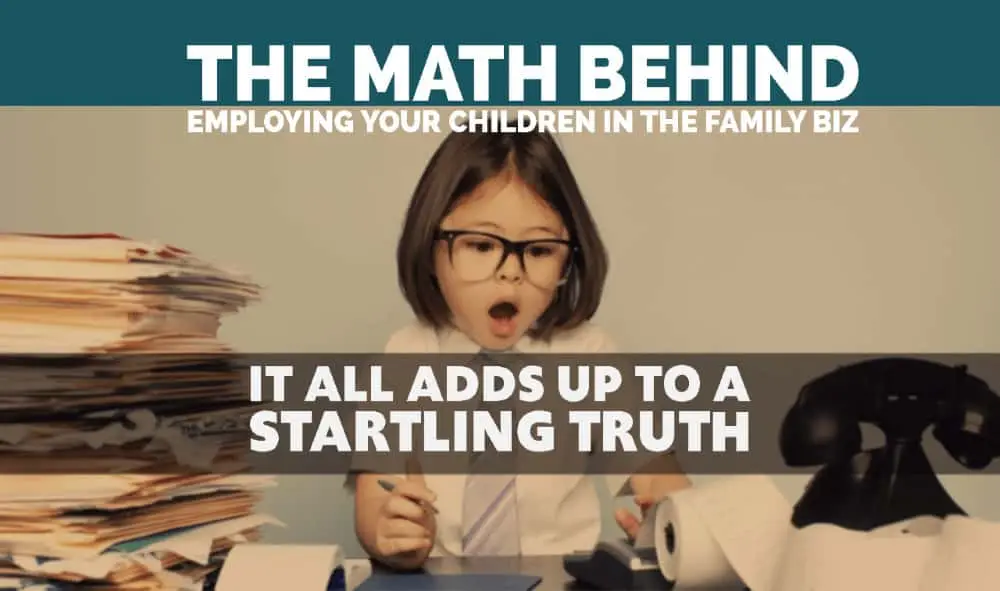Frozen Bank Account Due to Unpaid Florida Sales Tax? A frozen bank account? When a taxpayer has unfiled returns or unpaid Florida sales tax, the Florida Department of Revenue has the authority to freeze their bank accounts to collect the owed amount. This process begins with a notice sent to banks, freezing funds across all accounts […]
How to Hire Your Kids to Save Thousands in IRS Taxes
How much can I pay my child to work for my business according to the 2023 IRS guidelines?
The 2023 IRS guidelines state that you can pay your child a reasonable wage for their work in your business. This wage should be comparable to what you would pay an unrelated employee for similar work. It is important to keep accurate records of the hours worked and the tasks performed by your child, as well as to pay them regularly. This allows you to demonstrate that the payments are legitimate and that you are not using them as a means to avoid taxes.
Which IRS Tax Resolution Specialist Can Help? CPA, EA, Tax Attorney
When seeking tax debt relief, choosing the right IRS tax professional can make all the difference. From credentials to communication, here are eight critical considerations to guide your selection: 1) Credentials and Qualifications, 2) Experience with Similar Cases, 3) Reputation and Reviews, 4) Transparent Fee Structures, 5) Availability and Communication, 6) Continuing Education, 7) Professional Association Memberships, and 8) Trust and Comfort. Ensure a thorough evaluation to navigate your tax challenges with confidence.
Resolve your IRS tax problems promptly with these 10 Steps
Confronting tax problems related to issues from the IRS can be daunting and tense. If you have outstanding taxes, are confronted with an audit, or encounter other tax complications, it’s vital to act promptly and discover a resolution. Luckily, there are measures you can adopt to address your tax predicaments and reclaim authority over your monetary circumstances.
IRS Jeopardy Assessment: Can the IRS Levy for Owed Money?
Discover the implications of an IRS Jeopardy Assessment for tax debt. Learn if the IRS can levy due to outstanding liabilities. Get informed now.
IRS Fresh Start Program | How to Qualify for Tax Relief
IRS Fresh Start Program The Fresh Start program helps eligible taxpayers settle their tax debts. It offers easier processes, lower payment amounts, and manageable repayment plans. Trying to figure out how to pay your taxes can be stressful, but the Fresh Start Program may be able to help. People who have trouble paying their taxes […]
Ways For IRS Tax Debt Relief With IRS Fresh Start Program
If you’re an American facing financial difficulties and can’t afford to pay your taxes, you can seek relief from your IRS tax debt by applying for the IRS Fresh Start program.
Great Opportunities For IRS Tax Debt Relief
When you have IRS tax debt and know that you owe taxes, a common and reasonable response is panic, particularly if you owe a lot of money to the government. Individuals and people who own small businesses often seek help from tax relief services. These firms represent you before the IRS, submit Offer In Compromises, […]









